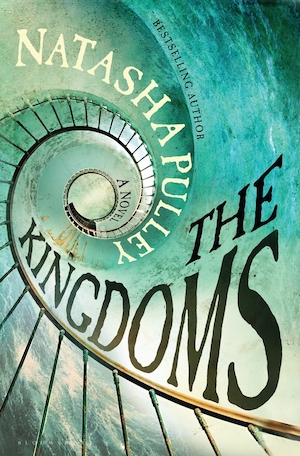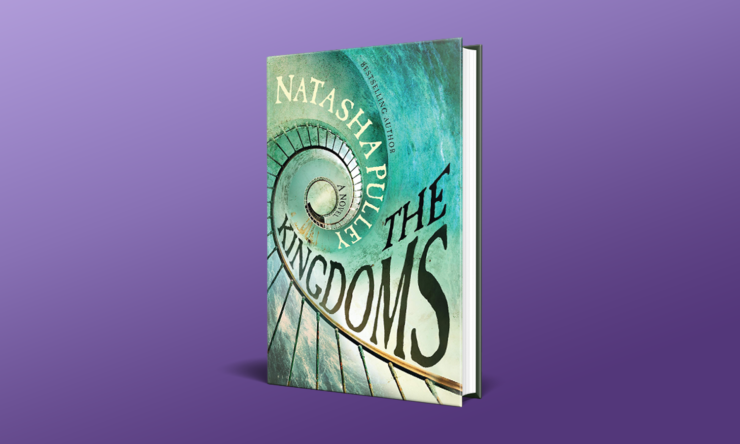Any high-level categorization of a book inevitably fails to fully capture the complete essence of a story. And then there are books like The Kingdoms by Natasha Pulley, where even assigning several labels to the tale still doesn’t do the story justice.
The Kingdoms contains multitudes: it is a love story, a seafaring war novel, a time-travel mystery, an alternative history tale, and more. And while each description in the previous sentence is accurate, each description fails to capture all that the book encompasses.
The plot, however, is straightforward enough (by time-travel standards, at least). We start the book following the journey of Joe Tournier, a 43-year-old man who has lost his memory and lives in an alternative version of 1898 England where France won the Napoleonic War.
Even though Joe doesn’t remember anything before his 43rd birthday, he feels an urgent sense of loss, something that wakes him up each night in a panic. And so when he receives a 93-year-old postcard asking him to come home, if he remembers, Joe is compelled to go to the Scottish lighthouse drawn on the front of the postcard, leaving his beloved daughter behind.
Timey-wimey things happen at said lighthouse, and he’s sent back to 1807 where he’s eventually captured by Captain Kite. Kite knows he’s from the future (he knows quite a lot about Joe, actually) and Joe’s futuristic know-how is an asset to the English, who are losing the Napoleonic War because France had captured several folks from the future a few years earlier (hence, the alternative timeline).
Buy the Book


The Kingdoms
The plot moves on from there, with Joe and Kite in a push-pull entanglement that is revealed to be a slow-burn romance. That’s where the “love story” label for the novel comes in, and Pulley conveys the two’s heartache brilliantly, making the reader ache along with them as they witness and execute unspeakable horrors as they try to survive the war.
Those horrors and the acts that characters commit stick with you long after you finished the book. That’s why merely calling The Kingdoms a love story is incomplete—the book is as much about trauma as it is about love, and Pulley doesn’t flinch away from showing how the impacts of trauma reverberate throughout history.
Kite and Joe—along with pretty much everyone else in this book—experience trauma in spades. People, including children, die suddenly and brutally, and the characters barely seem to react—this is understandable and almost expected given the hard realities of war. The book, however, doesn’t give you enough time to process what the characters have gone through and what they’ve done.
There is a promise that the processing, grieving, and perhaps accountability for the characters’ actions will take place after the book ends. For many readers, that will likely be enough. Those looking for a happily ever after, however, won’t close The Kingdoms feeling just happy. Or at least not only happy—bittersweet is too tame a word for the maelstrom of happiness, relief, grief, and anger you may have.
Those conflicted feelings at the end—the warmth of love persevering despite the horror of the atrocities committed—left me conflicted as well. And maybe that’s okay—The Kingdoms, as I said at the beginning of this review, isn’t just one thing. It’s complex and conflicting and complicated, just like real life is. And so if I finished the book feeling relieved, unsettled, and upset, that’s not necessarily a bad thing. It is, in fact, most likely what Pulley intended.
Confusing emotions aside, one thing I can say definitively about The Kingdoms is that the story drew me in. It’s not a fast-paced book, but it’s probably the fastest I’ve read a novel in the last year. Pulley is undoubtedly a skilled and engaging writer, and if you’re ready for a complicated tale with sharp edges that will hurt long after you’re done reading, The Kingdoms is worth your time.
The Kingdoms is available from Bloomsbury.
Vanessa Armstrong is a writer with bylines at The LA Times, SYFY WIRE, StarTrek.com and other publications. She lives in Los Angeles with her dog Penny and her husband Jon, and she loves books more than most things. You can find more of her work on her website or follow her on Twitter @vfarmstrong.










